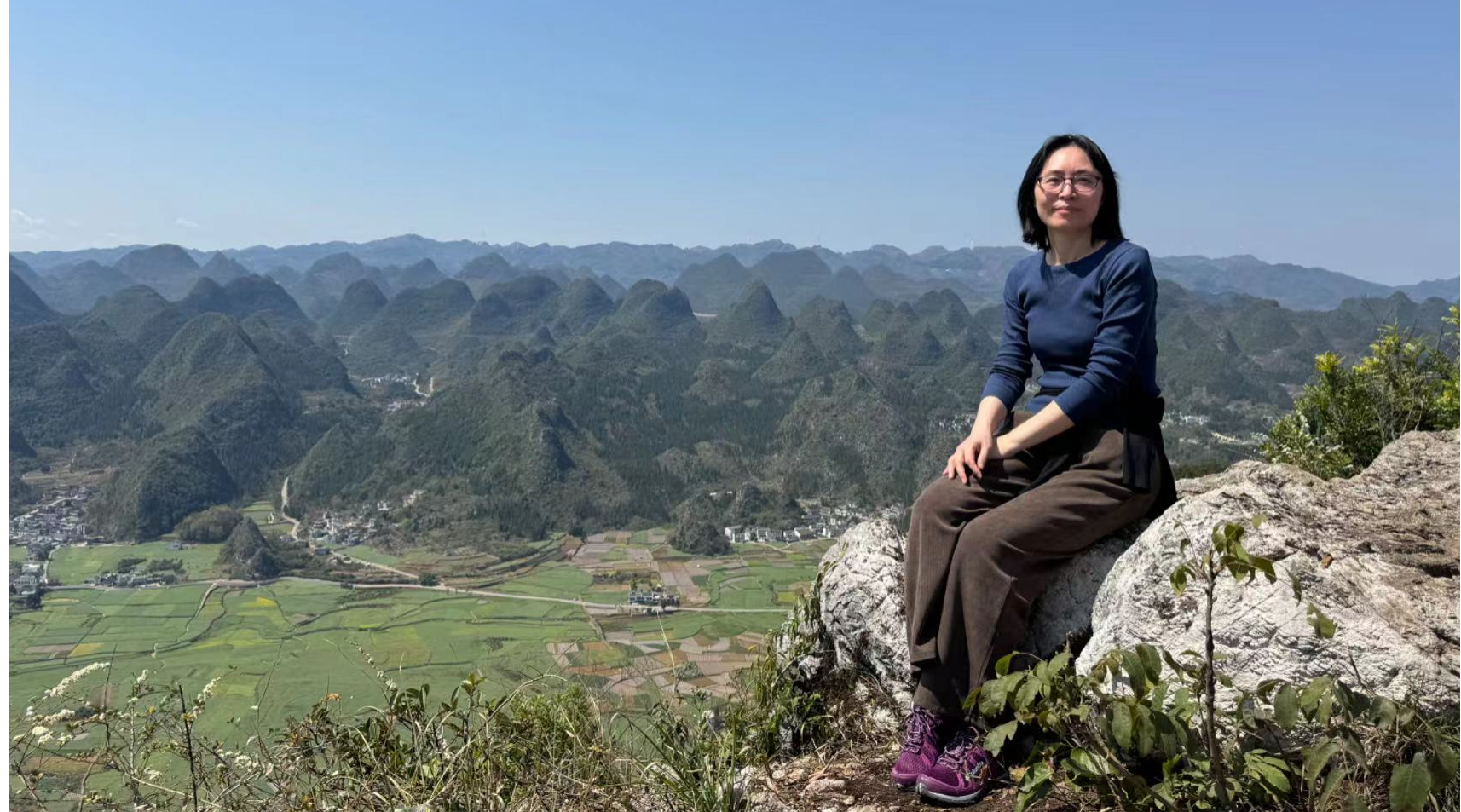
严海蓉
清华大学人文与社会科学高等研究所教授、兼社会学系教授
个人简述
我早期研究城乡劳工流动,因为这一流动构成了当代中国发展和社会变迁的主要特征之一。1998年我在农村调研发现不少年轻的农村女性以“非出去不可”的决心逃离农村、奔向城市。这种带有自我-主体性危机的动因并不能简单地用城乡差距来解释。我不禁开始思考,是什么样的现代性和什么样的城乡关系使得农村无法承载青年的未来,甚而使得农村不再被托付抚育下一代?(我这一代很多人被父母送到农村,托付给祖父母照顾。)通过世纪之交农村女性的城乡流动,我努力透视其中的城乡关系丶性别关系和阶级关系,撰写了New Masters, New Servants: Migration, Development, and Women Workers in China(杜克大学出版社,2005)。
从2005年开始,我前往非洲调研中国的人员、商品、资本往非洲的流动。面对主要源自西方的中国“新殖民主义”等标签,我和香港科技大学的沙伯力教授合著了《中国在非洲:话语与实践》 (中国文献出版社,2017),辨析中国走出去与曾经的西方走出去有何种差异,中国走出去对全球南方国家有着怎样的影响。
同时,留守的中国农村发生着前所未有的变化。自从中国加入WTO,中国农村与世界市场更紧密地联在了一起。2005年前后被中国媒体称为的“大豆之殇”就是这样标志性事件。2013年我回到农村调研,关注中国的食物主权、农政变迁、以及农村合作/集体经济,并和志同道合者探索乡村振兴和可持续发展的途径。
学术服务
部分的学术服务包括从2011至2015,担任美国人类学协会期刊American Ethnologist编委会成员;自2015年起,担任国际期刊 Journal of Peasant Studies国际顾问委员会成员;自2018至2020,担任设于布鲁塞尔的可持续食物体系国际专家组成员(iPES-Food); 自2018年起,担任国际期刊 Environment and Planning D- Society and Space的编委会成员和南非期刊South African Review of Sociology的国际顾问委员;自2018年起. 担任中信改革发展研究基金会资深研究员。
教育背景
2002年,华盛顿大学,人类学博士
1995年,加州大学伯克利,民俗学硕士
1993年,南京大学,英美文学硕士研读
1991年,华中科技大学,科技英语学士
研究发表
最新的论文发表信息见ORCID: 0000-0003-3673-1991;Scopus ID: 56991808400
著作(书)
2018. Michael Levien, Michael Watts, and Yan Hairong. Agrarian Marxism, a special issue of Journal of Peasant Studies 45(5-6). [Also published: 2019. Michael Levien, Michael Watts, and Yan Hairong eds. Agrarian Marxism. Routledge.]
2017. 严海蓉,沙伯力.《“中国在非洲”: 话语与实践》. 北京: 社会科学文献出版社.
2015. Barry Sautman, Yan Hairong. Localists and “Locusts” in Hong Kong: Creating a Yellow-Red Peril Discourse. Maryland Monograph Series in Contemporary Asian Studies, no. 2. 94 pp.
2013. 潘毅,严海蓉,古学斌,顾静华,编辑.《社会经济在中国》. 北京: 社会科学文献出版社.
2013. 古学斌,严海蓉, 编辑. 中国大陆社会经济专辑, 《台湾社会研究季刊》.
2012. Barry Sautman and Yan Hairong. The Chinese are the Worst? : Human Rights and Labor Practices in Zambian Mining. Maryland Series in Contemporary Asian Studies (Baltimore: University of Maryland School of Law), no. 210.
2008. Yan Hairong. New Masters, New Servants: Migration, Development, and Women Workers in China. Durham: Duke University Press.
2007. Yan Hairong, Daniel F. Vukovich, eds. What’s Left of Asia, special issue, positions 15(2). This special issue is a collection of nine essays.
2006. Barry Sautman, Yan Hairong. East Mountain Tiger, West Mountain Tiger: China, Africa, the West and “Colonialism”, Maryland Monograph Series in Contemporary Asian Studies (Baltimore: University of Maryland School of Law), no. 186.
主要论文(中文)
2022. 严海蓉、沙伯力、白立邦、阿塔·曼苏尔、安吉拉·特里托. “‘一带一路’:多重主体的交汇,”《文化纵横》, 第5期:134-145。
2021. 严海蓉、沙伯力、路瑶.“合同流动、自主流动和中国人在非洲的本地化.”《开放时代》1:131-155.
2020. 严海蓉、古学斌、徐思远. 2020.“乡村振兴、学者和中国大陆集体未来的动力.”《台湾社会研究季刊》117:167-197.
2018. 丁玲、戚莉霞、严海蓉.“藏北高原上的集体牧业社区.”《经济导刊》10:80-85.
2018. 严海蓉. “振兴乡村: 以农民为主体,以集体为龙头—贵州大坝村发展集体经济的案例.”《经济导刊》 3:88-91.
2016. 严海蓉、Barry Sautman.“非洲中资企业的劳工和种族化叙述.”《开放时代》4: 44-66.
2016. 严海蓉、陈义媛、古学斌.“中国大豆危机:现代化的逻辑与话语权抗争.”《台湾社会研究季刊》104:153-185.
2016. 沙伯力、严海蓉.“中国企业在非洲: 问题、策略与出路.”《文化纵横》2: 46-55.
2016. 陈义媛、严海蓉、陈航英.“农民、政府、市场与种子: 五省玉米产区的调研发现.”《热风》3: 5-20.
2016. 严海蓉、沙伯力.“‘中国在非洲’: 话语与现实.”《区域》1: 313-336.
2015. 严海蓉. “中国农业的发展道路专题导言.”《开放时代》5: 12-17.
2015. 严海蓉、陈义媛.“中国农业资本化的特征和方向: 自下而上和自上而下的资本化动力.”《开放时代》5: 49-70.
2015. 严海蓉、陈航英.“农村合作社运动和第三条道路: 争论与反思.”《开放时代》2: 180-200.
2014. 严海蓉.“大豆产业危局与保卫食物主权.”《经济导刊》12: 76-81.
2013. 严海蓉, 沙伯力. “关於中国的修辞法?: 对中国向发展中国家输送囚劳的谣言分析.”《中国非洲研究评论2012》. 北京: 社科文献出版社.
2010. 严海蓉. “‘知识分子负担’与家务劳动: 劳心与劳力,性別与阶级之一.”《开放時代》6: 103-120.
2010. 严海蓉. “阶级的言说和改造: 劳心与劳力,性別与阶级之二.”《开放時代》6: 121-139.
2010. 沙伯力, 严海蓉. “‘中国在非洲’: 全球体系的困境.”《中国经济》1: 58-69.
2010. 沙伯力, 严海蓉.“非洲人對中非关系的认知.”《西亚非洲》8: 69-72; 11: 51-59.
2010. 严海蓉. “小农挑战全球资本主义: 评人民粮食主权论坛.”《中国非营利评论》5: 227-236.
2007. 严海蓉. “不带身份认同的立足点: 斯皮瓦克、严海蓉访谈.”《国外理论动态》2: 29-33; 3: 42-46.
2007. 沙伯力, 严海蓉.“友谊与利益: 中非关系的独特性.”《西亚非洲》4: 55-61.
2006. 严海蓉. “美国劳工运动中的病症—评《出卖团结》.”《读书》11: 87-98.
2005. 严海蓉. “虚空的农村,空虚的主体.” 《读书》7: 74-83.
2002. 严海蓉. “现代化的幻影: 生産和消费的双人舞.”《台湾社会研究季刊》48: 95-134. 收录于《台社移民/工读本: Unquiet Migration 骚动流移》, 夏晓鹃编辑, pp.357-390, 台社出版社,2009.
2001. 严海蓉. “素质,自我发展,和阶级的幽灵.”《读书》 3: 18-26. 收录于《中国社会文化人类学/民族学百年文选》,潘蛟主编,下卷,323-333页. 北京: 知识财产权出版社,2008年.
主要论文(英文)
2024. Yan Hairong, Barry Sautman. “COVID-19 and the racialisation of Chinese wildlife consumption.” Third World Quarterly 45(2):1-22. DOI:10.1080/01436597.2024.2309241
2023. Yan Hairong, Barry Sautman. “China, colonialism, neocolonialism and globalised modes of accumulation.” Area Development and Policy 8(4): 416-449. doi.org/10.1080/23792949.2023.2259459
2023. Yan Hairong,Barry Sautman. “China, Ethiopia and the Significance of the Belt & Road Initiative.” China Quarterly 257:222-247. doi:10.1017/S0305741023000966
2021. Yan Hairong, Zheng Weidi.“Positioning Ourselves on China in Africa.”Journal of African Cultural Studies 33(2): 152-163. DOI: 10.1080/13696815.2020.1824772
2020. Yan Hairong.“Mode Switching: the State, Market, and Anti-Covid-19 Shadow of Socialism in China.” Dialectical Anthropology 44:213-221.
2020. Yan Hairong, Ku Hok Bun and Xu Siyuan.“Rural revitalization, scholars,and the dynamics of the collective future in China.” Journal of Peasant Studies, 48(4):853-874.
2018. Michael Levien, Michael Watts, and Yan Hairong.“Agrarian Marxism.”Journal of Peasant Studies 45(5-6): 853-883.
2018. Yan Hairong, Barry Sautman, and Lu Yao.“Chinese and ‘Self-Segregation’ in Africa.” Asian Ethnicity 19(4): 40-66.
2016. Yan Hairong, Chen Yiyuan.“Land reform in Zimbabwe, class dynamics and delayed Bandung: an interview with Sam Moyo.” Inter-Asia Cultural Studies 17(1): 128-139.
2016. Barry Sautman, Yan Hairong. “The Discourse of Racialization and Labor in Chinese Enterprises in Africa.” Ethnic and Racial Studies 39(12): 2149-2168.
2016. Yan Hairong, Chen Yiyuan and Ku Hok Bun. “China’s Soybean Crisis: The Logic of Modernization and Its Discontents.” The Journal of Peasant Studies 43(2): 373-395.
2015. Yan Hairong, Chen Yiyuan. “Agrarian Capitalization without Capitalism?: Capitalist Dynamics from Above and Below in China.” Journal of Agrarian Change 15(3): 366-391.
2014. Barry Sautman, Yan Hairong.“Bashing the Chinese: Contextualizing Zambia’s Collum Coal Mine Shooting.” Journal of Contemporary China 23: 1073-1092.
2013. Yan Hairong, Chen Yiyuan. “Debating Rural Cooperative Movements in China, the Past and the Present.”Journal of Peasant Studies 40 (6): 955-981.
2013. Yan Hairong, Barry Sautman. “‘The Beginning of a World Empire’?: Contesting the Discourse of Chinese Copper Mining in Zambia.” Modern China 39(2): 131-164.
2012. Yan Hairong, Barry Sautman. “Chasing Ghosts: Rumors and Representations of the Export of Chinese Prisoners to Developing Countries.” China Quarterly 210 (June): 398-418.
2010. Yan Hairong, Barry Sautman. “Chinese Farms in Zambia: From Socialist to ‘Agro-Imperialist’ Engagement?” African and Asian Studies 9: 307-333.
2009. Barry Sautman, Yan Hairong.“African Perspectives on China-Africa Links.” China Quarterly 199 (September): 729-760.
2008. Barry Sautman, Yan Hairong. “The Forest for the Trees: Trade, Investment, and the China-in-Africa Discourse.” Pacific Affairs 81(1): 9-29.
2007. Barry Sautman, Yan Hairong. “Friends and Interests: China’s Distinctive Links with Africa.” African Studies Review 50(3): 75-114. [reprinted in 2008 China’s New Role in Africa and the South: A Search for a New Perspective, eds. Dorothy-Grace Guerrero and Firoze Manji, pp. 87-133. Cape Town and Oxford: Fahamu.
2007. Yan Hairong, Daniel F. Vukovich. “What’s Left of Asia?” positions 15(2): 211-224.
2007. Yan Hairong.“A Position without Identity.” positions 15(2): 429-448.
2006. Yan Hairong. “Rurality and Labor Process Autonomy: The Question of Subsumption in the Waged Labor of Domestic Service.” Cultural Dynamics 18(1): 5-31.
2003. Yan Hairong.“Neo-Liberal Governmentality and Neo-Humanism: Organizing Value Flow Through Labor Recruitment Agencies.” Cultural Anthropology 18(4): 493-523.
2003. Yan Hairong. “Spectralization of the Rural: Reinterpreting the Labor Mobility of Rural Young Women in Post-Mao China.” American Ethnologist 30(4): 578-596.
2000. Yan Hairong. "Review Article: The Tibet Question and the Conundrums of Modernization." Asian Ethnicity 1(2): 156-164.
